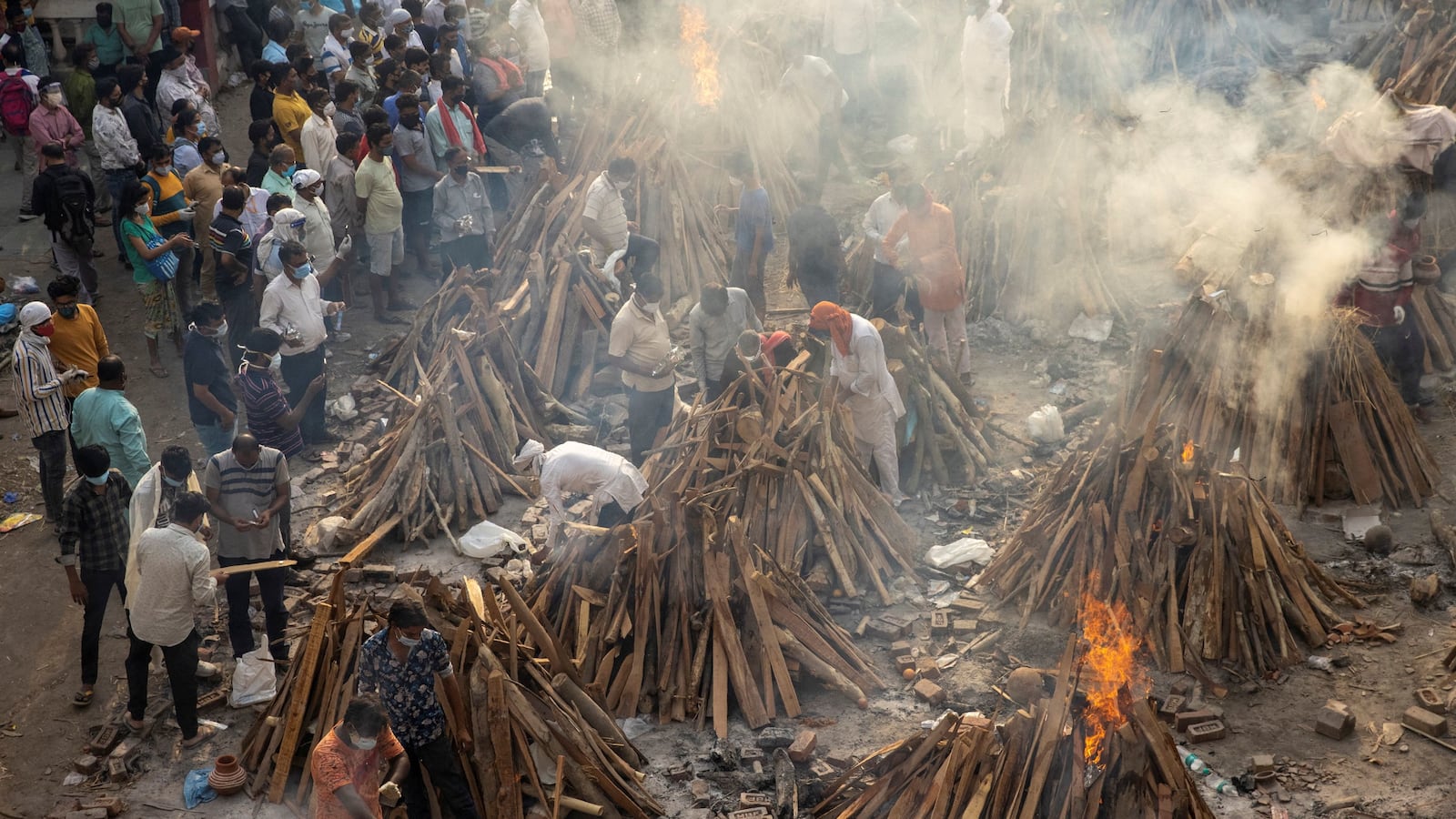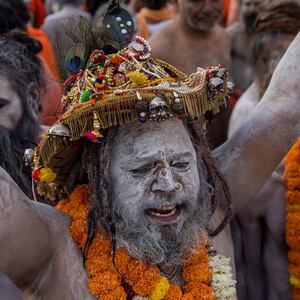In normal times, the tweet by Indian Prime Minister Narendra Modi telling people to go out and vote would be a routine call to action. But as his country drowns under the worst wave of the coronavirus pandemic the world has seen so far, it is a death wish.
“Last phase of the 2021 West Bengal elections takes place today,” Modi tweeted Thursday as India officially logged nearly 380,000 new COVID-19 cases and more than 3,000 deaths. “In line with the COVID-19 protocols, I call upon people to cast their vote and enrich the festival of democracy.”
But the problem is, there is no COVID-19 protocol strong enough to stop the rampant spread of the coronavirus in India. Hospitals are beyond overwhelmed, medical supplies are severely overstretched, and makeshift crematoriums are being hastily built in parking lots to keep up with the dead. Some are only half-cremated because of shortages in firewood. People are dying in their cars in front of hospitals and collapsing in the streets.
And there is no clear plan out. All 940 million adults in the country will be eligible for shots starting Saturday, but health authorities say there aren’t enough doses to go around, and the Serum Institute of India, which produces the made-in-India AstraZeneca vaccine, says they have a backlog of five to six months of orders. India’s immunization program, which started strong with 3 million doses a day a few months ago, has faltered due to shortages. Serum is pumping out about 60 million doses a month, Bharat Biotech is producing around 10 million of its Covaxin shot, and another company will start producing Russia’s Sputnik V later in the year, The New York Times reports. But none of that is enough. “It is like inviting 100 people at your home for lunch. You have resources to cook for 20,” epidemiologist Dr. Chandrakant Lahariya tweeted.
Writing in The Guardian, novelist and political activist Arundhati Roy says the world is witnessing a crime against humanity and she believes Modi is squarely to blame. “People are dying in hospital corridors, on roads and in their homes. Crematoriums in Delhi have run out of firewood. The forest department has had to give special permission for the felling of city trees,” she writes. “The system hasn’t collapsed. The government has failed. Perhaps ‘failed’ is an inaccurate word, because what we are witnessing is not criminal negligence, but an outright crime against humanity.”
It is little wonder that the hashtag #ModiMustResign is trending. His ruling Bharatiya Janata Party prematurely claimed it had defeated COVID-19, giving people confidence to return to normal. In March, 50,000 fans watched a cricket match in the Narendra Modi Stadium in Ahmedabad. A month later, thousands attended Modi’s political rallies and tried to wash the virus away en mass at the Kumbh Mela festival at group bathing events in the Ganges and Yamuna rivers.
The situation is only getting worse. The U.S. embassy has even called on all American citizens to evacuate the country, in an unprecedented move generally reserved for Americans in nations at war.
But India’s health-care system, which the World Health Organization ranked among the worst in the world well before the pandemic, is now being blamed for the chaos even as Modi fans the fire by refusing to call a national lockdown, likely to ensure people can go out and vote for his party. “Our system is broken even during normal times,” Ruben Mascarenhas, a social activist in Mumbai, told the Los Angeles Times in New Delhi. “We can’t really expect it to work in the pandemic.... Our heart breaks every time a case goes unresolved. It is like a continuing nightmare. You have one in the day. You have one at night. And it keeps going on like that.”
Meanwhile, Modi continues to campaign, promising that if his party retains power, vaccines will miraculously be available to all and the crisis will abate. Not everyone believes that, of course. “The crisis-generating machine that we call our government is incapable of leading us out of this disaster,” Roy writes in her Guardian op-ed. “Not least because one man makes all the decisions in this government, and that man is dangerous—and not very bright.”
By midday Thursday, millions of voters had lined up to vote in the West Bengal state, which had so far escaped the worst of India’s latest wave, but still had cases at a record daily high. But judging by the lack of social distancing at the polls, that will likely soon change.







